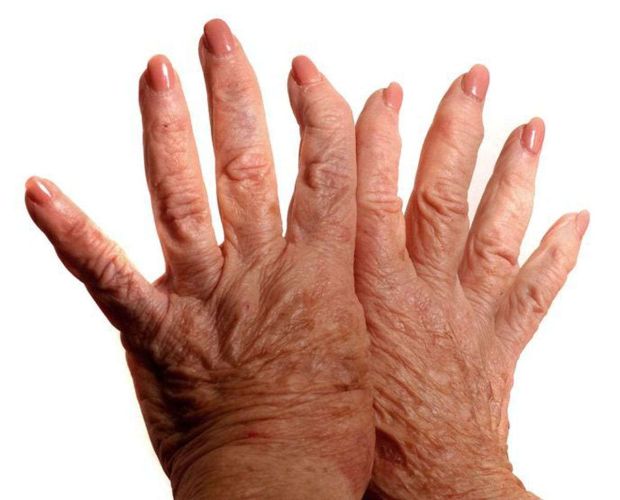Arthritis Is Not the End of Mobility — Early Treatment Helps You Achieve Your Dreams

Upasana Kaura
Every year, World Arthritis Day is observed on October 12 to raise awareness about arthritis. The theme for World Arthritis Day 2025 is “Achieve Your Dreams” emphasising that early diagnosis and timely management can help people with arthritis lead active, fulfilling lives.
Understanding Arthritis
Arthritis refers to inflammation of one or more joints, causing pain, swelling, stiffness, and limited movement. Over 200 different diseases fall under the umbrella term arthritis, affecting individuals across all age groups, from children to the elderly. Among the most common types are osteoarthritis (wear and tear of joints), rheumatoid arthritis (an autoimmune disorder where the body attacks its own joints, and gout.
“Early diagnosis and timely intervention are crucial in managing arthritis effectively. The longer one delays treatment, the higher the risk of irreversible joint damage and disability. Unfortunately, many patients tend to ignore early signs such as joint stiffness, swelling, or pain, considering them as age-related issues. This delay can lead to severe complications that may later require surgical intervention,” says Dr Ajay Kumar Paruchuri, Sr. Consultant Orthopedics, CARE Hospitals, Banjara Hills, Hyderabad.
Adds Dr Amit Grover, Orthopedic Surgeon, Apollo Spectra Hospital Mumbai, “Currently, there is a 40% surge in cases of Arthritis in young adults belonging to the age group of 20-40. 4 out of 10 people visiting me every month come with symptoms of joint pain and stiffness linked to arthritis. The causes can be attributed to long hours of desk jobs, lack of exercise, poor posture, injuries, obesity, autoimmune conditions, family history, and stress. The symptoms seen are joint stiffness, pain, swelling, warmth, reduced flexibility, and fatigue. If ignored, arthritis can lead to chronic pain, joint deformities, disability, and reduced quality of life. Advanced treatments such as minimally invasive surgeries, targeted biologic therapies, and physiotherapy now help younger patients maintain mobility and continue with their active routines. Lifestyle changes like regular exercise, weight control, and stress management go a long way in preventing progression.”
Doctors remind us that arthritis is no longer a condition limited to the elderly. Increasingly, people in their 20s, 30s, and 40s are being diagnosed with arthritis, and cases are steadily rising. Sedentary lifestyles, rising stress levels, unhealthy habits, and genetic predisposition are major contributors. Many young patients ignore early warning signs such as mild joint stiffness or swelling, only to face chronic pain later. Hence, awareness, timely intervention, and lifestyle modifications can make a big difference in long-term outcomes.
Says Dr Srisanat Rao, Orthopedic & Joint Replacement Surgeon, Zynova Shalby Hospital, “Many young people dismiss joint stiffness or pain as temporary, but these can be the first signs of arthritis. Now, there is a 20% surge in cases of Arthritis in young adults aged 20-40. 2 out of 10 people in a month report joint pain and stiffness associated with arthritis. Arthritis in young adults is linked to sitting for long hours, lack of physical activity, and poor diet contribute to the problem. Early recognition is vital. Diagnosing it early can help to control inflammation, reduce pain, and prevent long-term damage. Timely physiotherapy, medication, and newer minimally invasive procedures are giving patients long-lasting relief and helping them avoid disability. Regular physical activity, a healthy, balanced diet, weight management, stress reduction, and medical support can help. So, ensure not to ignore early warning signs and to seek timely medical care to protect their joint health.”
Dr. Ajay Kumar Paruchuri further emphasizes that arthritis can have multiple causes, hereditary factors, obesity, joint injuries, sedentary lifestyle, metabolic disorders, infections, and age-related degeneration. While some causes cannot be changed, such as age or genetics, modifiable risk factors like obesity, lack of exercise, and poor diet play a significant role in disease progression. “Maintaining a healthy weight, engaging in regular physical activity, and adopting an anti-inflammatory diet can significantly reduce arthritis severity and improve quality of life,” he added.
Management of Arthritis
The management of arthritis involves a multidisciplinary approach, including physiotherapy, occupational therapy, rheumatology, pain management, and lifestyle modification. Early medical therapy can reduce inflammation, preserve joint function, and delay or prevent the need for surgery.
“Osteoarthritis remains the most common form of arthritis, particularly among older adults. It frequently affects the knees, hips, and spine, causing chronic pain and reduced mobility. For mild to moderate cases, non-surgical options such as physiotherapy, lifestyle correction, joint supports, and intra-articular injections help improve joint function and comfort,” says Dr Paruchuri.
“In advanced cases where conservative treatments fail, total joint replacement surgery, especially knee or hip replacement, provides excellent long-term outcomes. It allows patients to live pain-free, regain mobility, and enjoy an active lifestyle,” he adds.
Emerging Techniques
Emerging techniques such as arthroscopy, osteotomy, and cartilage restoration procedures are also being increasingly adopted to preserve joint health and delay progression to end-stage arthritis. Although stem cell therapy shows promise, further research is needed to establish standardised outcomes.
Actually, it is not just a disease of aging — it can affect anyone. Awareness, early diagnosis, and prompt medical attention are key to preventing disability. Remember, movement is life and life is movement.
Let us all work together to increase awareness about arthritis, encourage early consultation, and empower individuals to take proactive steps toward joint health and improved quality of life.

